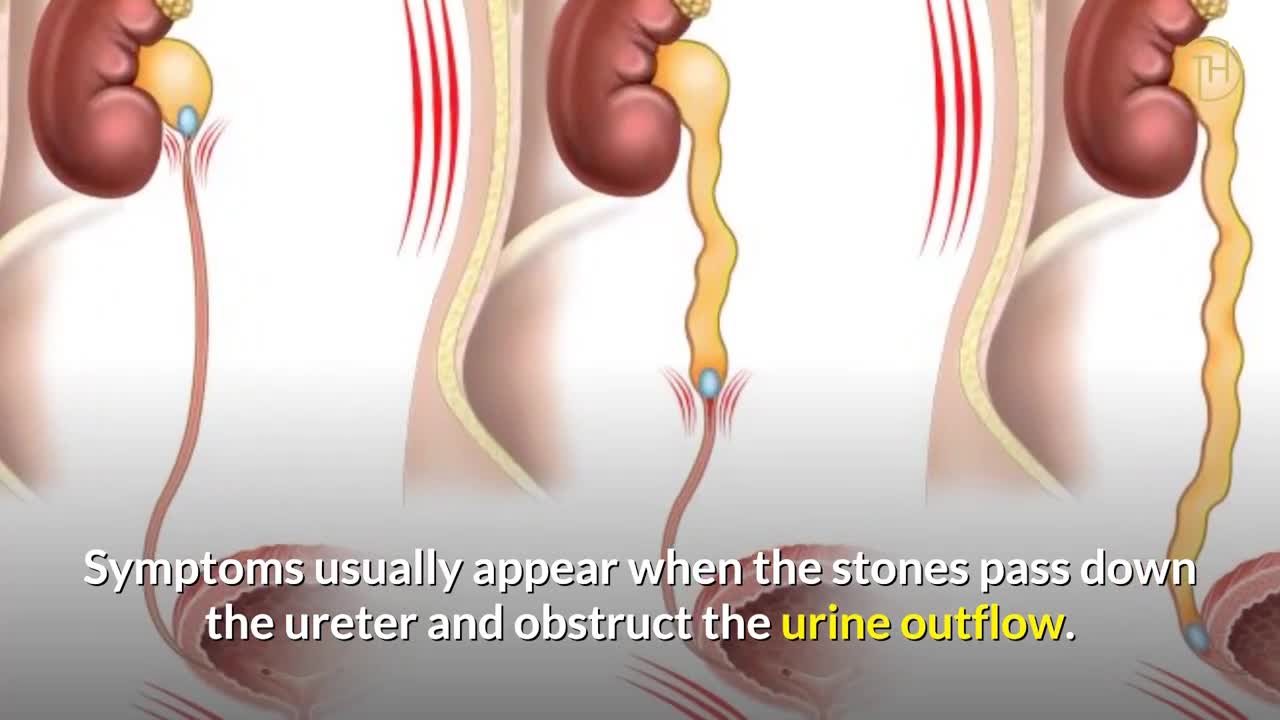Premium Only Content

Symptoms Of Kidney Stones _What Are The Most Common Signs & Symptoms Of Kidney Stone Disease
Kidney stone disease, also known as nephrolithiasis, is a common urological problem among many people.
Kidney stones are often medically referred to as renal calculi. These calculi typically originate within the kidneys.
However, sometimes they can pass down in to the ureters, and bladder, and can cause obstruction of the passage of urine.
Four major types of renal calculi present.
Calcium stones, accounting for about 75% of cases.
Magnesium ammonium phosphate stones.
Uric acid stones.
And cysteine stones.
In addition, certain medications also responsible for kidney stones.
Some of these include indinavir, Atazanavir, Silicate, and Sulfa drugs such as sulfasalazine, and sulfadiazine.
Hypercalciuria, or high calcium in urine is the most common metabolic abnormality that leads to the formation of calcium stones.
Some cases of hypercalciuria are related to increased intestinal absorption of calcium some are related to hormone abnormalities, like hyperparathyroidism.
In addition to hypercalciuria, other factors that leads to increased formation of kidney stones include low fluid intake.
Family history of kidney stone disease.
Hyperuricemia, or high uric acid levels in blood due to high intake of protein-rich foods, or due to inherited conditions.
Urinary tract infections.
And low citrate levels in blood.
Well, what are the most common symptoms of kidney stone disease?
People with kidney stones usually have severe back pain. This pain is also referred to as renal colic.
Renal colic usually occurs when the renal stones pass down in to the ureters, and compromise the urine outflow.
Renal colic is extremely severe and it is like somebody stabs you in the back with a sharp knife. And sometime the pain may radiate to the groin area.
The pain starts suddenly, and may fluctuate as the stone moves.
In addition, passing blood in urine, or hematuria,
Nausea and vomiting,
Low urine output,
Pain during urination,
High grade fever, are some other symptoms of renal stone disease.
Smaller stones may sometimes will not cause any symptoms.
So, how to treat renal stone disease?
Well, if the stones are smaller in size, they may spontaneously pass out when the person urinates.
However, this could be extremely painful.
Sometimes, medications are given to dissolve these stones, as well as to prevent further formation of new stones.
And if the person is having a urinary tract infection, antibiotics may be given.
For larger stones, surgical intervention may be needed.
Drinking a plenty of water,
Taking a low sodium and protein diet,
Uptake of food that are rich in citrate, which can inhibit the production of renal stones are recommended for prevention of kidney stone disease.
Thanks for watching!
Hope someone found this video helpful!
#KidneyStones #Nephrolithiasis #SymptomsOfKidneyStones
-
 LIVE
LIVE
Right Side Broadcasting Network
12 hours ago🎅 LIVE: Tracking Santa on Christmas Eve 2024 NORAD Santa Tracker 🎅
3,185 watching -
 2:48
2:48
Steven Crowder
15 hours agoCROWDER CLASSICS: What’s This? | Nightmare Before Kwanzaa (Nightmare Before Christmas Parody)
208K12 -
 33:49
33:49
Quite Frankly
11 hours agoThe Christmas Eve Midnight Telethon
6.85K1 -
 LIVE
LIVE
Price of Reason
11 hours agoAmber Heard BACKS Blake Lively Lawsuit Against Justin Baldoni! Is Disney CEO Bob Iger in TROUBLE?
224 watching -
 1:01:17
1:01:17
The StoneZONE with Roger Stone
5 hours agoChristmas Edition: Why the Panama Canal is Part of the America First Agenda | The StoneZONE
27.8K17 -
 LIVE
LIVE
LFA TV
16 hours agoLFA TV CHRISTMAS EVE REPLAY
570 watching -
 LIVE
LIVE
tacetmort3m
23 hours ago🔴 LIVE - THE ZONE KEEPS PULLING ME BACK - STALKER 2 - PART 15
1,212 watching -
 22:45
22:45
Brewzle
13 hours agoI Went Drinking In A Real Bourbon Castle
21.9K3 -
 48:36
48:36
PMG
1 day ago $1.03 earned"Parkland Parent Speaks Out On Kamala Harris Using Victims"
15.7K3 -
 4:06
4:06
The Lou Holtz Show
11 hours agoCoach Lou Holtz’s Heartfelt Christmas Message 🎄 | Family, Faith & Notre Dame Spirit 💚 #christmas
11.8K